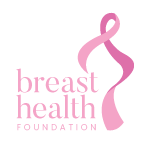A diagnosis of cancer can be one of the most stressful experiences of life. In addition to the worries over survival and treatment, many patients find that they have additional concerns over the cost of medical treatment. In South Africa, 80% of patients are managed within the government health service, and 20% have medical insurance that means they can be treated in private hospitals. Many people find that they have let medical aid run out, or are not covered in a way they thought they were. If you do have medical aid, there are a number of considerations to remember to check in case you have a diagnosis of Breast Cancer in your life.
Most importantly remember: you cannot afford NOT to be treated for Breast Cancer.
I haven’t got Medical Aid
There are many excellent public hospitals and superb academic cancer specialists who work in government hospitals. As with all times of illness: knowledge is power, therefore knowing what management you should be expecting will help you navigate through the system.
Websites like this one and other searches on the internet can help you get more information to help you in your journey.
There are many organisations that wish to help patients who do not have the resources for travelling to a hospital or managing treatments.
Navigating Medical Aids
All medical aids, even hospital plans, have to provide some cancer cover. This will include in-patient care but may also include specialist fees, chemotherapy and cover for radiation and medications. The amount and type of treatments covered tends to depend on the medical aid plan that you are on, and it may require you to register for a cancer scheme after diagnosis. Check when you are considering starting or changing medical aids what type of treatments you are covered for.
Fortunately, medical aids are not allowed to refuse cover for a patient with a pre-existing condition and that includes cancer. Remember to always mention these conditions to your medical aid so that you gain access to appropriate care and do not disqualify yourself.
Check your policy too as many companies encourage good health by funding screening mammography and Pap smears even to patients without day-to-day benefits.
Cancer policies
Even if you have medical aid, some of the initials concerns about cancer that patients suffer are not about survival or treatments, they are about whether they will be able to afford their treatments or go into debt. Because of this many insurance companies offer a policy which allows patients to unlock financial resources to cover the gap between what is covered and what is required.
Disability cover
Disability cover protects your ability to earn a living. It allows you to retrieve money from your policy when you are unable to work for certain periods of time. This may be due to temporary or permanent disability. The policy may be related to your ability to work at all or your ability to carry out your specific occupation.
Estate planning (making a will)
Nobody likes to think of a time when they will not be here, but it is said ‘death, taxes and childbirth: there is never a convenient time for any of them!’
Your estate is everything that you own, from a house and car to your jewelry and cell phone. If you do not plan for who will receive them after you die, the government will plan for you and may leave your family and dear ones without the resources they need when they need them.
Making a will is a simple exercise and shows how much you love the people around you. It is a good idea to also stipulate who should make decisions for you, if you are too ill to decide for yourself how you would like doctors to treat you.
Banks will often help you draw up a will. (can we get a sample download will?)
Saving now for the future
Saving money is not easy, but if you are worried about how you can afford to cope if you get ill now is the time to start. Once you ensure that you have coverage in place for managing your expenses (such as medical aid and disability, cancer or life insurance) have a look at your monthly budget and look for ways to save a small amount into an emergency fund each month. This can act as a financial buffer when you have a significant outlay. This might not even be a medical expense, but it will come in useful if you do have an unexpected medical diagnosis.
Budgeting also allows you to work towards paying off debts. Often the greatest of patients is not how to afford future treatment, but how to keep up with past debts during a period where you cannot work.
If you do get into debt or cannot afford treatments, discuss the problems with your doctor. They may have knowledge of charities that can provide financial assistance or work to find a longer but easier solution to payments.
